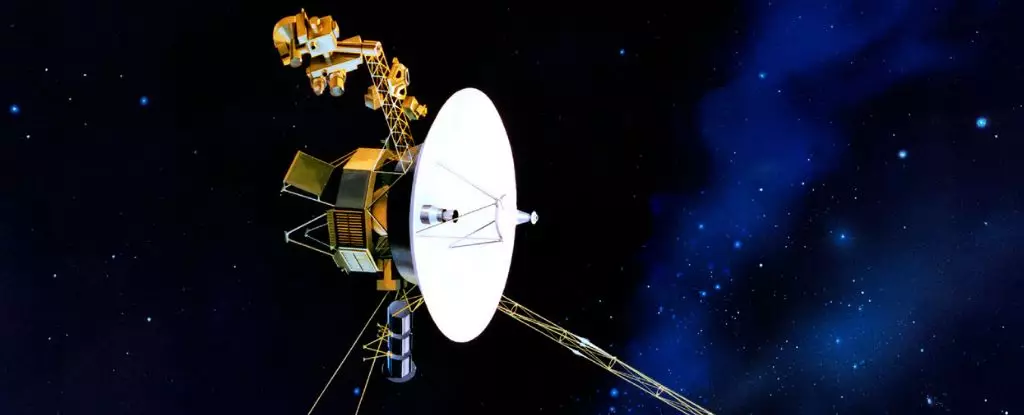

Voyager 1, the most distant spacecraft from Earth, has been sending back puzzling signals composed of seemingly random 1s and 0s. Scientists at NASA were baffled by this gibberish until they decided to send a coded command to the spacecraft’s flight data subsystem (FDS) in March. This command triggered a response that unveiled a startling revelation – about 3 percent of the FDS memory is corrupted. The source of this corruption seems to be localized to a single chip within the computer’s memory system.
After receiving the response from the FDS following the ‘poke’ command, engineers noticed that the system was generating strange readings in an unfamiliar format. By decoding these anomalous signals, the Voyager team was able to pinpoint the exact location of the corruption within the memory system. This breakthrough allowed NASA to gain insight into the root cause of the issue that had been plaguing Voyager 1 for months.
Voyager 1, launched in 1977, has surpassed its original mission objectives of exploring Jupiter and Saturn. However, its outdated computers have posed a challenge for engineers trying to troubleshoot the recent memory corruption. The technology onboard Voyager 1 is so antiquated that NASA had to refer to decades-old documents to address the ailing system. Despite these obstacles, engineers remain resilient in their efforts to restore Voyager 1’s functionality.
While the exact cause of the memory corruption remains unknown, potential factors include damage from energetic particles in space or simply the effects of aging hardware. NASA’s Voyager mission team continues to work diligently to overcome the corruption and allow Voyager 1 to resume its transmissions from the outer reaches of interstellar space. It may take several more weeks or even months before a solution is found, but the team is committed to resolving the issue and extending the mission of this groundbreaking spacecraft.
In an era where environmental consciousness is paramount, the maritime industry has long been scrutinized…
Radionuclides, often relegated to discussions surrounding nuclear energy and radioactive waste, have far-ranging implications for…
Landslides have long been a concern in areas like California, where the unique geography and…
In the vastness of our galaxy, among countless stars, lies a fascinating phenomenon known as…
This week marks a monumental milestone in astronomy as the Hubble Space Telescope celebrates its…
The enigma of dark matter has captivated the scientific community for decades. Although it constitutes…
This website uses cookies.